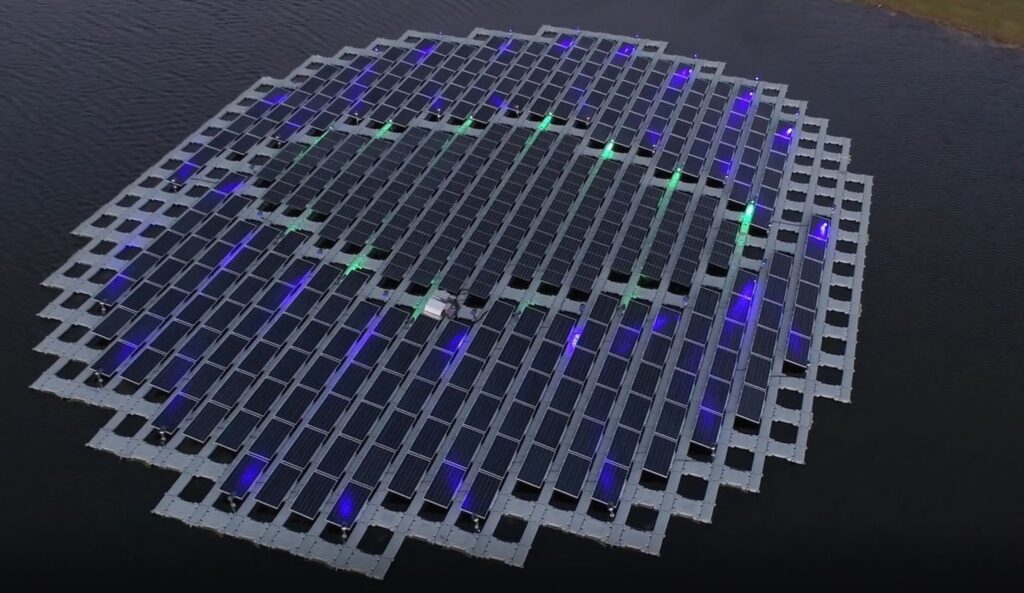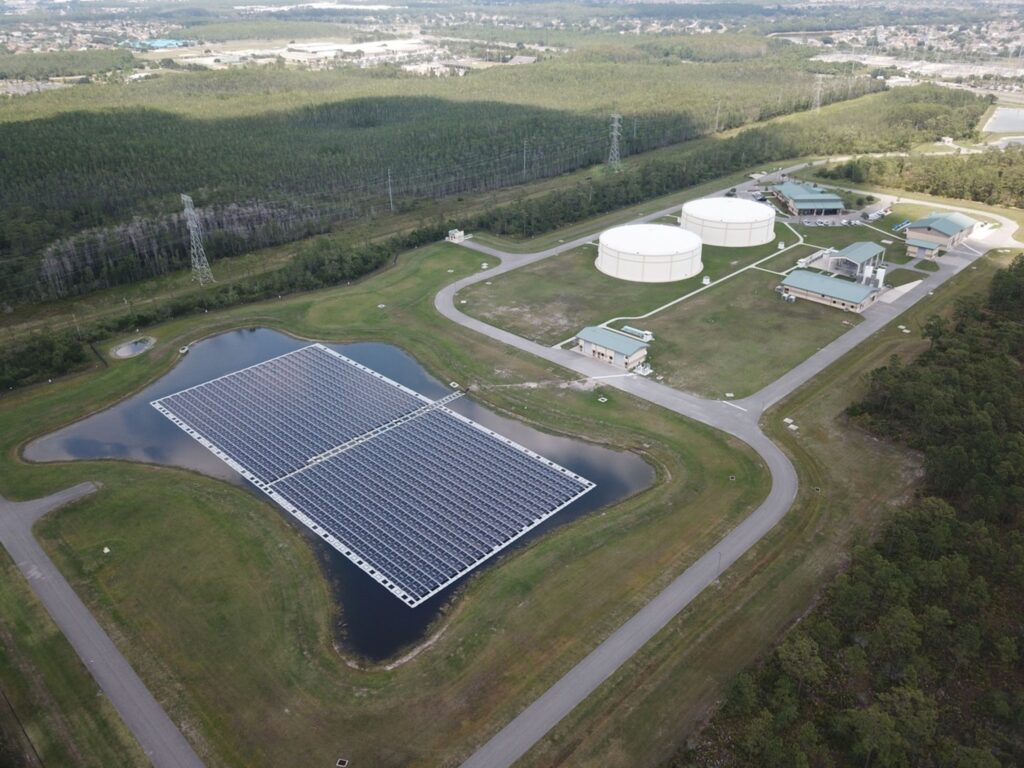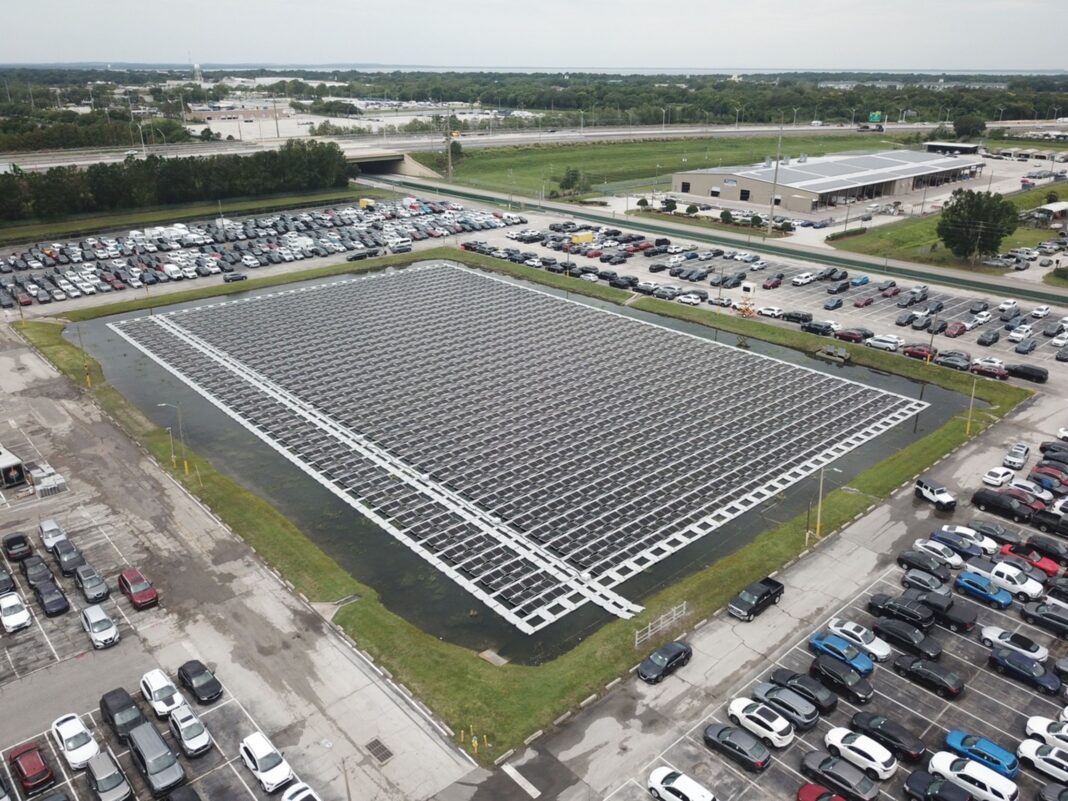Floating solar is an emerging technology with a number of advantages over traditional panels. And Florida is leading the way.
With an abundance of both water and sunshine, Florida is at the epicenter of an emerging technology — floating solar. Floating solar panels, called “floating photovoltaics,” are similar to regular solar, but they’re anchored to pond bottoms rather than attached to rooftops or tracts of land. They are made from HDPE plastics that are highly durable and resistant to corrosion. The units are anchored to cement blocks on lake bottoms, with enough slack to allow for the natural rise and fall of water levels during periods of drought or heavy rains.
“Florida is the perfect center,” says Stetson Tchividjian, development director for D3 Business Development in Miami. D3 has installed all of the floating solar systems in Florida to date, such as those at the Orlando and Miami airports.

The Orlando project — a joint partnership between the airport and the Orlando Utility Commission — is working so well that, in addition to powering the airport, it produces enough leftover energy to power an estimated fifteen local residences.
A major advantage of floating solar is that it doesn’t require scarce and pricey real estate. “Land is at a high premium and costly,” Tchividjian says, “and roof tops sometimes are not enough space. Saving land is more and more of the conversation.”
The scarcity of available land is what led Manheim Auto Auctions in Central Florida to floating solar. Its 224-acre lot is completely occupied by cars, and its rooftops aren’t large enough to fit enough solar panels to fully meet the business’ energy needs. A floating solar array on a large drainage pond on the property offered “the perfect test case,” according to Tchividjian. Manheim now has installations at two locations in the Orlando area.
The Central Florida Expressway Authority anchors floating solar arrays in retention ponds along the highway and uses the energy they generate to power its traffic message signs. Solar in general is a good idea for electrical highway signs, because when storms create power outages, the signs keep working to keep drivers informed of traffic conditions.
Water helps cool floating solar panels, which boosts their performance. Some floating solar systems are equipped with tracking devices to follow the sun, increasing their efficiency. And floating solar arrays shade the water in lakes and ponds, which means less algae — a chronic pollutant problem that harms marine life and other wildlife, and can be dangerous for people and pets, too.
In terms of energy generation, Tchividjian says that the efficiency of floating units is in line with that of ground and rooftop installations. Most Florida installations produce around one megawatt of electricity, enough to power about 750 homes at once.

While floating solar currently provides roughly five percent of the solar power in the USA, that amount could double by 2025, according to Tchividjian. Southeast Asian countries are currently the biggest users of the technology, he says. And industry sources expect the technology to triple worldwide in the next two years.
When D3 first started with floating solar, “people thought we were really crazy,” Tchividjian says. Now, the company has installations not only in Florida, but also in Texas, North Carolina, Delaware and Ohio. The U.S. military has installed floating solar at Fort Liberty (formerly Fort Bragg), North Carolina. The company even has a project in New Zealand. “We and the technology are rapidly growing,” Tchividjian says.


